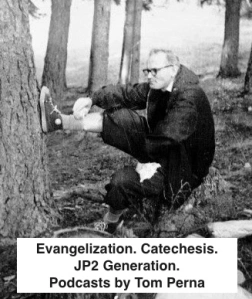One week ago today, the now-famous interview with Pope Francis was released across the globe via the Jesuit Order. Here in the United States, we received an interview from the Jesuit publication, America – The National Catholic Review. If you haven’t read the interview, I would encourage you to read it, but read the actual interview itself, not some hijacked cherry-picked version that the mainstream media produced to make Francis sound like something he is not.
Honestly, I enjoyed the interview. I know many of my Catholic friends had their own opinions on it, but today’s post is not a rehashing of what was said and not said by Francis in the interview, that’s been done enough.
If Pope Francis is not challenging you or you have not felt uncomfortable with some of his words, you obviously aren’t listening. He has challenged me in ways I never thought, and yes, it’s totally uncomfortable! He is awakening many Catholics who are settled in their “comfort zones.”
Being that I blog and read other bloggers as well, it’s funny to read what’s being said about the new Holy Father. Others have said, He is too “progressive”, but he is still “conservative.” He seems “orthodox” but it’s a disguise to be “liberal.” He is going to “destroy the Extraordinary Form of the Mass!” He is breaking from the “continuity” of his predecessors.
Blah, blah, blah! He is neither liberal or conservative, he is Catholic! Just like his predecessors before him, Francis is a Catholic Pope. He cannot, and should not, be pigeon-holed.
Personally, I have enjoyed many of his words on mercy, compassion, love, and the poor. Do you think he is much different than his predecessors? Let’s look at some of the words of the Holy Father –
1. “Mercy that is truly Christian is also, in a certain sense, the most perfect incarnation of “equality” between people, and therefore also the most perfect incarnation of justice as well, insofar as justice aims at the same result in its own sphere.”
2. “Society can become more human only if we introduce into the many-sided setting of interpersonal and social relationships, not merely justice, but also that “merciful love” which constitutes the messianic message of the Gospel.”
3. “There is a need to intensify and broaden what is already being done in his area, with the goal of reaching as many of the poor as possible. Sacred Scripture reminds us that God hears the cry of the poor (cf. Ps 34:7) and the Church must heed the cry of those most in need. Hearing their voice, “she must live with the poor and share their distress. By her lifestyle, her priorities, her words and her actions, she must testify that she is in communion and solidarity with them.”
4. “…A woman represents a particular value by the fact that she is a human person, and, at the same time, this particular person, by the fact of her femininity. This concerns each and every woman, independently of the cultural context in which she lives, and independently of her spiritual, psychological and physical characteristics, as for example, age, education, health, work, and whether she is married or single.”
5. “It is deplorable that homosexual persons have been and are the object of violent malice in speech or in action. Such treatment deserves condemnation from the Church’s pastors wherever it occurs. It reveals a kind of disregard for others which endangers the most fundamental principles of a healthy society. The intrinsic dignity of each person must always be respected in word, in action and in law.”
6. “The poor are not to be considered a “burden”, but a resource, even from the purely economic point of view. It is nevertheless erroneous to hold that the market economy has an inbuilt need for a quota of poverty and underdevelopment in order to function at its best.”
7. “Mercy is the central nucleus of the Gospel message. In our time humanity needs a strong proclamation and witness of God’s mercy . . . Go forth and be witnesses of God’s mercy, a source of hope for every person and for the whole world.”
8. “The mission of the lay faithful is therefore to configure social life correctly, respecting its legitimate autonomy and cooperating with other citizens according to their respective competences and fulfilling their own responsibility.”
If you think Pope Francis is saying new things never said before by his predecessors, well then I suggest you read Blessed John Paul II and Pope Emeritus Benedict XVI quite a bit more.
Do you know why?
The first four quotes above are from Pope St. John Paul II and second four quotes above are from Pope Benedict XVI.
Categories: Pope Benedict XVI, Pope Saint John Paul II









Thanks Tom. Great blog.
There is bound to be overlap but to pretend there’s no discontinuity is flat out absurd. Francis’ problem isn’t what he says. It’s what he fails to say. He fails to condemn homosexual acts while affirming the dignity of homosexual persons. He fails to speak of the duty to form conscience while extolling its essential role. He fails to exhort atheists. On top of all of that I’d argue there’s a serious problem with substance. There is no clear reason to believe an atheist (“there is no God”) can be saved; it is a militant, conscious rejection of our innate yearning for God, who can be known through the light of reason alone.
Since it’s very late here and wanted to respond to your comment, I just suggest your read Jimmy Akin’s posts. They are very good and provide excellent explanations. This might not suffice for you, but it’s all I can do for tonight.
On Homosexuality – http://www.ncregister.com/blog/jimmy-akin/7-things-you-need-to-know-about-what-pope-francis-said-about-gays
On Atheism – http://www.ncregister.com/blog/jimmy-akin/did-pope-francis-say-atheists-dont-need-to-believe-in-god-to-be-saved-9-thi
Again, this might not suffice for you Jared, and for that I am sorry, but we must remember that it was the Holy Spirit who guided the College of Cardinals to elect Pope Francis. In the end, the Holy Spirit is still guiding the Church, as he has done for 2000 years. Think about that – the Church has been doing this for 2000 years. Does the Holy Father make me uncomfortable too? Yes, but it’s what I personally need. He is different than his predecessors and that’s fine. Remember that most of these comments are coming in the form of interviews, they are not magisterial documents. Make sure you read Jimmy Akin’s posts.
Perhaps most troubling of all is Francis creating a rift between God’s laws and love. He told the story of the divorced and “re-married” woman who wants to move forward in her spiritual journey. He then immediately follows that up with a plea for the Church to move beyond “small-minded rules”. What does that mean? How ominous is that? The Church’s “small-minded rules” direct men to their proper end and reveal God’s love. Apparently he doesn’t understand that.
There is a real danger of pride in what Francis is doing. He is being praised more and more every time he opens his mouth; earning the respect of media figures and opinion makers.
I am really sorry you feel what you feel about Pope Francis. As for me, I am with him. Too many people are quick to judge him. As much as I believe in dialogue, I believe debating online and via blog comment boxes becomes useless at some point. I refer to another good blogger and medical doctor – Dr. Gerard M. Nadal – http://gerardnadal.com/2013/10/03/pope-francis-ongoing-fallout-part-i/#comment-37224
It’s my hope that you find peace with him eventually. You are in my prayers. Please pray for me.
Hi Tom, Just a minor correction… I’m a Ph.D. in Medical Microbiology and Molecular Biology, not an MD. God Bless,
Gerry
Gotcha! Sorry for the mistake.